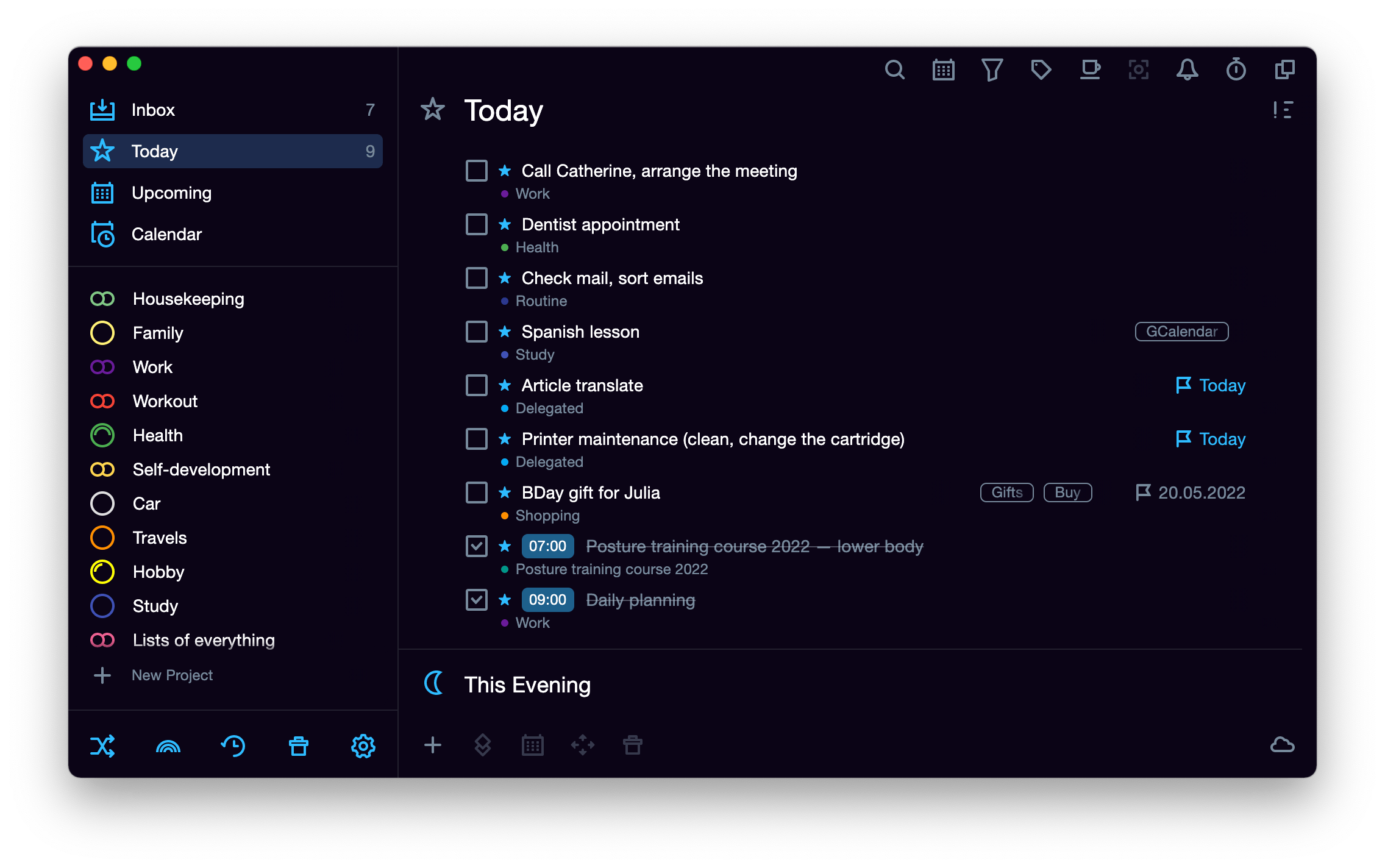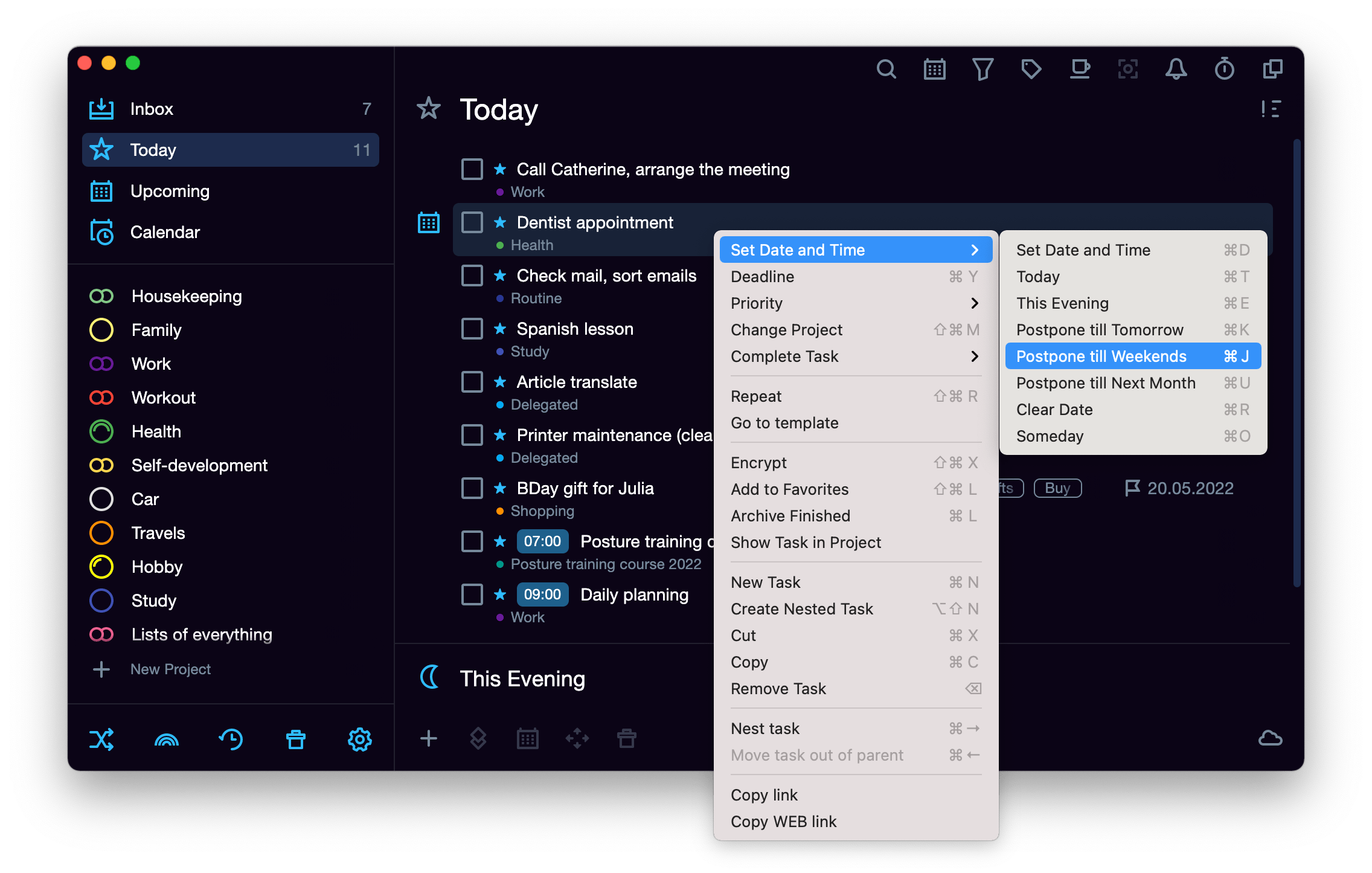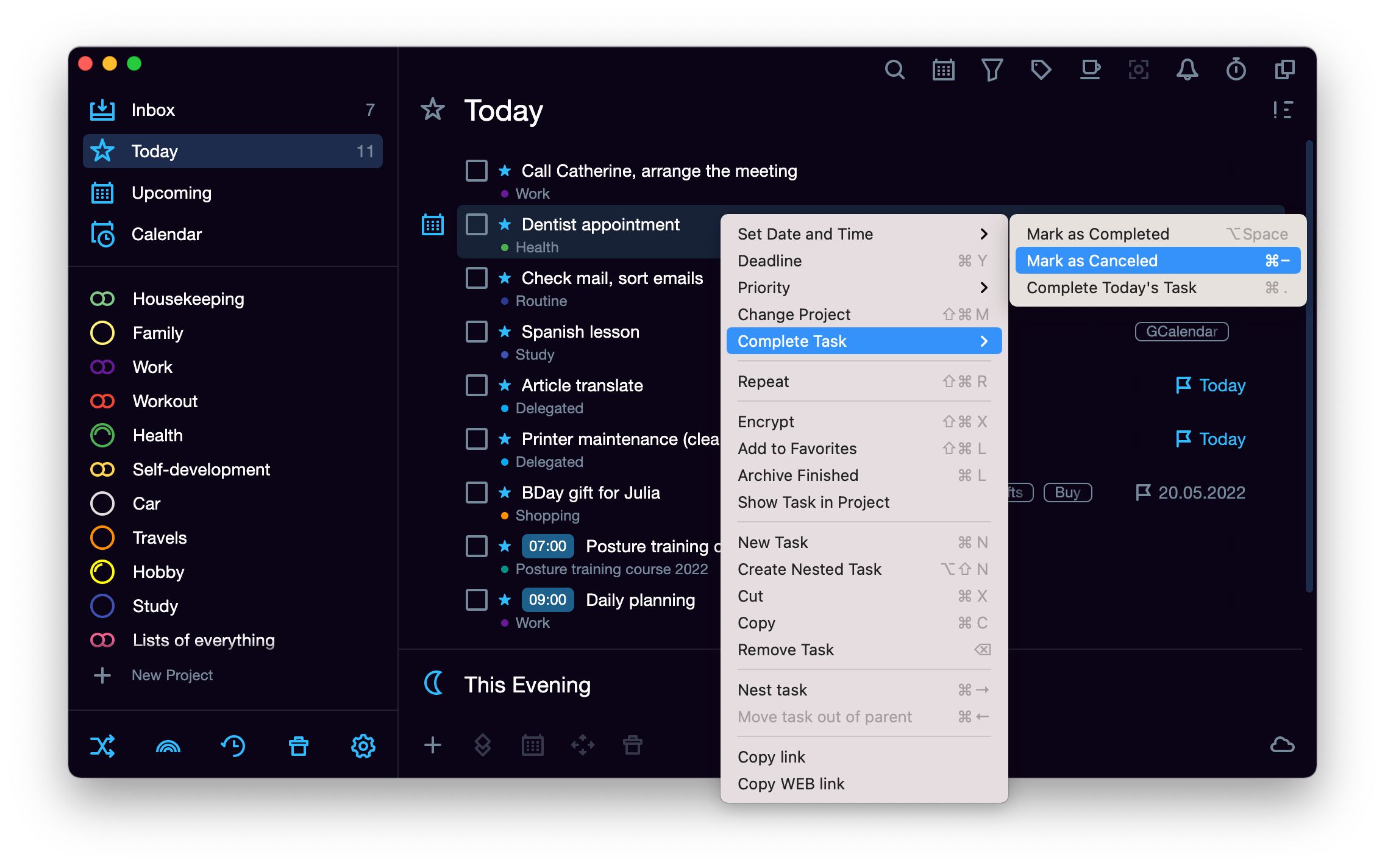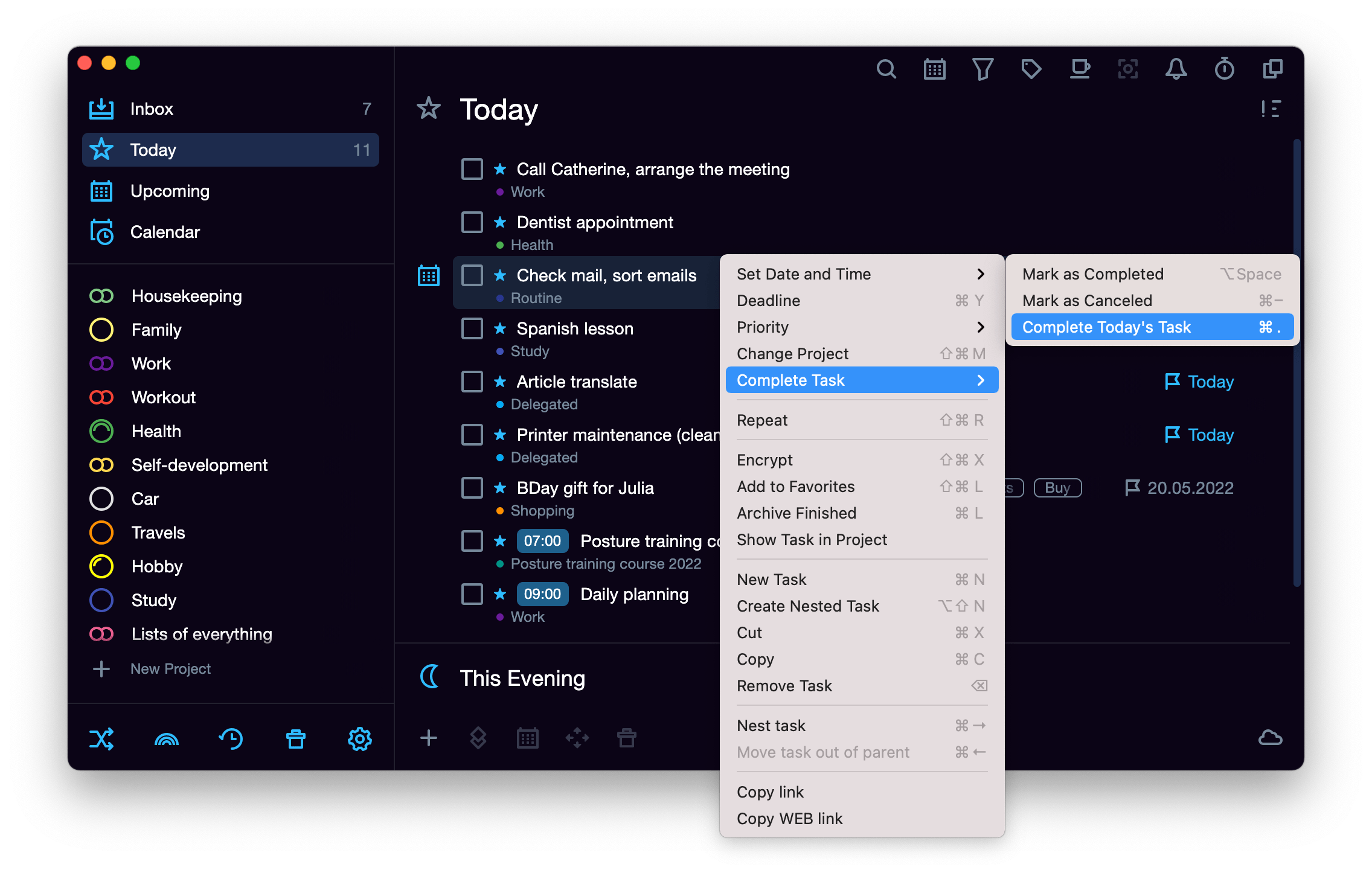Ideally, the number of difficult tasks in your plan should be not more than briefings, trainings, meetings with clients and trips to the dentist. There also should be an important strategic task, which your ideal future depends on. For example, it can be learning Yamanote dialect, if your ideal future is living in Tokyo and discussing with the old intellectuals why the nogaku is not the same as it was in the past. Such task should be scheduled, say, at 09:00 so as not to be missed.
Tough tasks scenarios
Tough tasks demand working the same way as in the army. There can’t be any "I forgot", "I was late", "I didn’t finish it". It must be only "I completed", or "I rescheduled', or "I canceled".
If everything went smoothly, click on the checkbox.

If there are delays (a client took a vacation, you got a flat tire, there’s a power outage in the fitness center), you can open the context menu and reschedule the task.

If everything has worked itself out and the meeting is no longer required, you can cancel the task.

Flexible tasks scenarios
Flexible tasks are things that are not very important, such as 'fix a button' or "check a first-aid kit'. They are the things that you need to do, but there is no rush. You always have flexible tasks more than hard ones, and they do not require military discipline.
You didn’t have time today — it’s not a big deal, suspend the task, you can finish it tomorrow.

If you don't want to get exhausted or burnt out, follow the 20 to 80 rule (Parkinson, hello!): allow 20% of the tasks in your scheduler to be tough and 80% to be flexible. And you will be on time, and nothing will dispirit you, and you will be happy.





